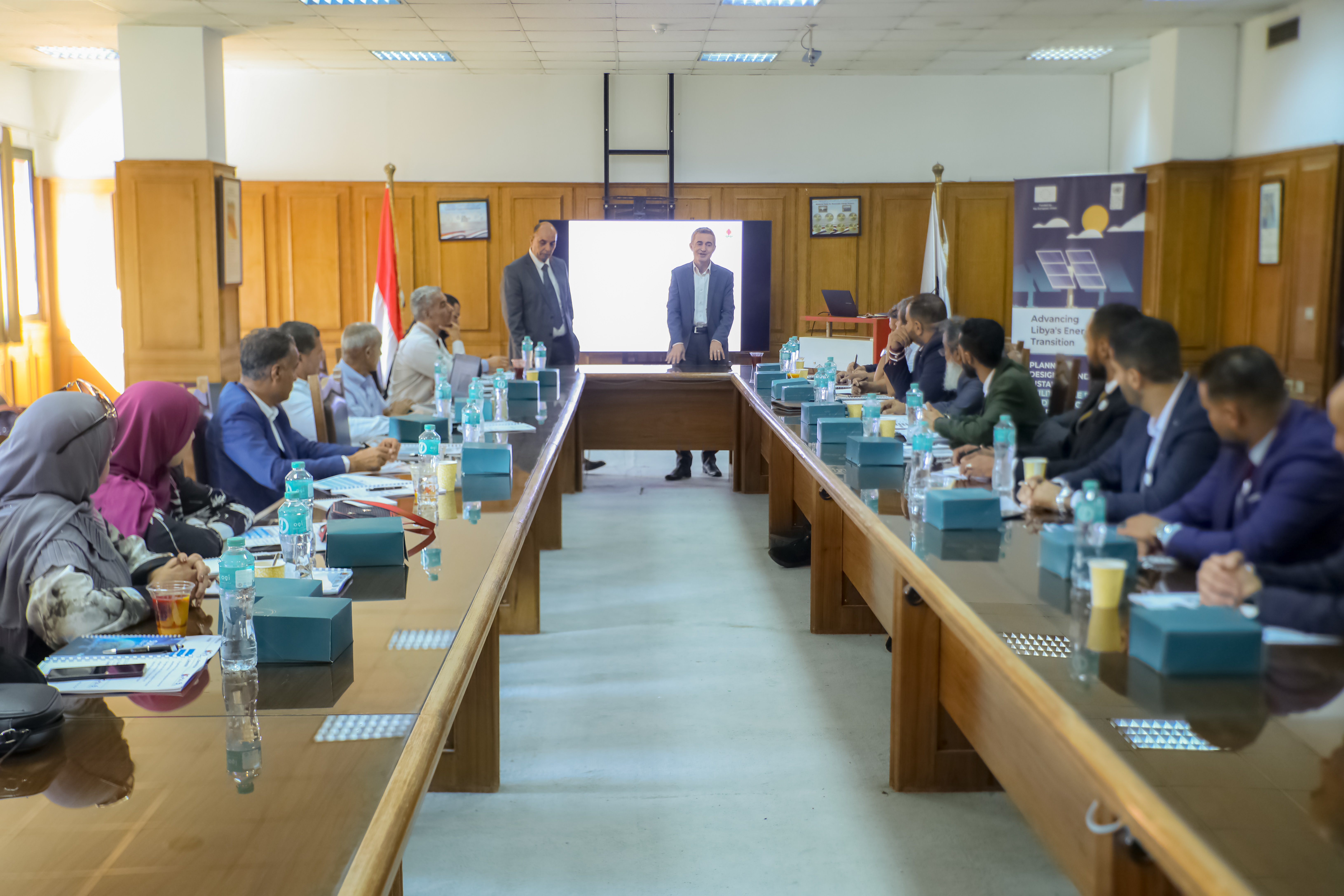A Step Toward a Greener Future: Building Libya’s Expertise on Renewable Energy
October 20, 2024

10-day training and study tour in Cairo, Egypt
Cairo, 20 October 2024 – In a major step toward improving renewable energy, the United Nations Development Programme (UNDP) brought together forty key officials from the Ministry of Planning (MoP), General Electricity Company of Libya (GECOL), Renewable Energy Authority of Libya (REAoL), Libyan Center for Solar Energy Research and Studies, and Al Enmaa Electric Investment for a comprehensive 10-day training and study tour in Cairo, Egypt. The program focused on the planning, designing, and installation of utility-scale photovoltaic (PV) systems and grid-connected rooftop systems.
Organized by UNDP, in collaboration with Egypt’s New and Renewable Energy Authority (NREA), this study tour is part of a broader effort to support Libya’s transition from reliance on hydrocarbons to clean, renewable energy sources. The participants were equipped with essential technical knowledge on solar PV systems, including site assessment, system design, installation, and maintenance. The hands-on training, including visits to the 50 MW solar power plant in Zafarana, prepares Libya for large-scale deployment of renewable energy solutions, contributing to economic growth and significant reductions in carbon emissions.
Dr. Sophie Kemkhadze, UNDP Resident Representative in Libya, emphasized the program’s alignment with Libya’s broader strategic goals, stating: “While oil remains the backbone of Libya's economy, it is crucial to begin a gradual shift towards renewable energy sources such as solar and wind. With its abundant sunshine, Libya has significant potential for solar energy projects that can meet domestic energy needs and open new avenues for export and job creation. Libya’s energy transition is a crucial component of the strategy for sustainable development.” The event, which ran from October 7th until 16th, underscores Libya’s commitment to expanding its renewable energy portfolio, building national capacity, and fostering environmental sustainability.
Funded by the European Union, this initiative underscores Libya’s commitment to expanding its renewable energy portfolio and fostering environmental sustainability. It is a critical step toward addressing the country’s energy challenges by integrating global best practices into the national grid, enhancing economic resilience, and ensuring long-term sustainability.

 Locations
Locations

